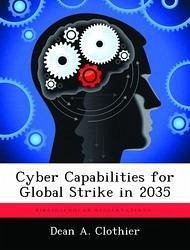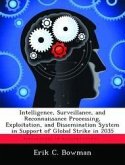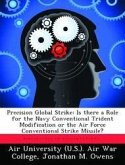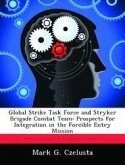This paper examines global strike, a core Air Force capacity to quickly and precisely attack any target anywhere, anytime, from a cyber perspective. Properly used, cyberspace capabilities can significantly enhance Air Force (AF) capabilities to provide the nation the capacity to influence the strategic behavior of existing and potential adversaries. This paper argues that the AF must improve both the quantity and quality of its cyberspace operations force, by treating cyber warfare capabilities in the same manner as it treats its other weapon systems. It argues that despite preconceptions of future automation capabilities, that cyberspace will be a highly dynamic and fluid environment characterized by interactions with a thinking adversary. As such, while automation is required, cyber warfare will be much more manpower intensive than is currently understood, and will require a force that is very highly trained. The rapid evolution of this man-made domain will also demand a robust developmental science and research investment in constantly keeping cyber warfare capabilities in pace with the technologies of the environment. This paper reaches these conclusions by first providing a glimpse into the world of cyberspace in 2035. The paper then assesses how cyber warfare mechanisms could disrupt, disable, or destroy potential adversary targets. It describes how these capabilities might work in two alternate scenarios, and then describes the steps the AF needs to take in the future to be confident in its ability to fly, fight, and win in cyberspace.
Hinweis: Dieser Artikel kann nur an eine deutsche Lieferadresse ausgeliefert werden.
Hinweis: Dieser Artikel kann nur an eine deutsche Lieferadresse ausgeliefert werden.








